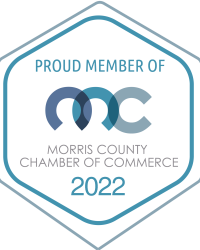
It is important for everyone to play a part in preventing alcohol and drug misuse or abuse. April is nationally recognized as Alcohol Awareness Month and we use this month to raise awareness, specifically regarding alcohol abuse and the actions we can take to prevent it, both at home and in the community.
As a result of the COVID-19 pandemic, people have been drinking more than usual to suppress stress and the negative emotions of missing activities or loved ones. Feelings of loneliness and isolation have led to escapism or the tendency to seek distraction and relief from unpleasant realities, especially by seeking entertainment or engaging in fantasy. The fantasy is that one can alleviate depression and anxiety with a depressant like alcohol.
The pandemic has changed social behavior. People who used to seek refuge in community and fellowship have fallen into the trap of isolation. As individuals have increasingly spent time alone to avoid the risks of the pandemic, they have become more susceptible to the temptation of alcohol.
Alcoholism is a subtle foe. For many, denial is a common trait. Those struggling with alcoholism or alcohol abuse underestimate the amount they drink and the impact it has on their life and relationships. Additionally, people commonly overestimate their ability to control their drinking or to quit altogether.
Alcohol Awareness Month is a great reminder that we need to draw attention to the causes of alcoholism, the signs and effects of the condition, and to consider how we can talk to a loved one about a drinking problem. If you or someone you know may be abusing alcohol:
- Get active – talk to them, accompany them to an AA meeting, encourage healthy behaviors (exercise, hobbies, fellowship).
- Assess your behavior, take your personal inventory – it is easy to access self-assessment tools created by the National Institute on Alcohol Abuse and Alcoholism to help you determine if your drinking is problem drinking.
- Share your concerns – Have honest, direct conversations with your loved ones. Present facts that are supported by observation.
If you feel that you or a loved one may be struggling with alcoholism, you are not alone. We understand how overwhelming it can be to consider seeking help for alcoholism and addiction and we are here to support you throughout that process. Our friends at BlueCrest Recovery Center are available to discuss your alcohol addiction treatment options and answer any questions you may have about the process. Call them today at 973-298-5776 to take the first step toward recovery.
For more information, please reach out to John Plunkett, Outreach Coordinator for BlueCrest Recovery Center
Email: JohnP@BlueCrestRC.comPhone: (973) 902-6116




